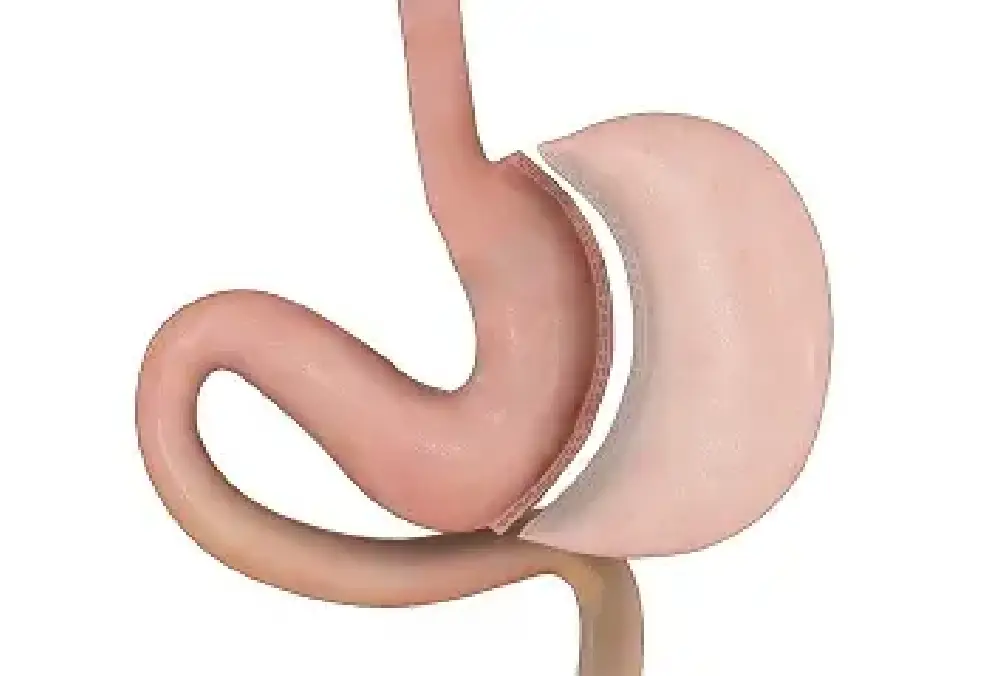Laparoscopic Sleeve Gastrectomy
Home -> Laparoscopic Sleeve Gastrectomy

- Laparoscopic Sleeve Gastrectomy
- Roux-en-Y Gastric Bypass Surgery
- Mini Gastric Bypass
- Endoscopic Sleeve Gastroplasty
- Single Anastomosis Duodenal Switch
- Duodenal Switch
- Revisions Surgeries
Overview
Laparoscopic Sleeve Gastroplasty (LSG) is a specialized weight-loss surgery designed to help individuals struggling with obesity achieve significant and sustained weight loss.
A little, banana-shaped stomach is left behind after a substantial piece of the stomach is removed by the surgeon during the procedure.
You can eat less because of this smaller stomach, which also makes you feel fuller more quickly.
Here are some key points about the procedure:
Minimally Invasive: LSG is performed laparoscopically, meaning the surgeon makes small incisions in the abdomen and uses a camera and special instruments to perform the surgery. This usually results in less pain, quicker recovery, and minimal scarring compared to traditional open surgery.
Effectiveness: Patients typically experience significant weight loss in the first year following the surgery. The amount of weight loss varies but can be substantial, often leading to improvements in obesity-related conditions such as type 2 diabetes, high blood pressure, and sleep apnea.
Mechanism: By removing most of the stomach, the procedure reduces the production of ghrelin, a hormone that stimulates hunger. This contributes to decreased appetite and helps with weight loss.
Recovery: Recovery time is generally shorter compared to other weight-loss surgeries. Patients might stay in the hospital for a few days and can usually return to normal activities within a few weeks. However, a gradual introduction of solid foods and adherence to dietary guidelines is crucial for successful long-term outcomes.
Lifestyle Changes: Post-surgery, patients need to make significant lifestyle changes, including following a specific diet, exercising regularly, and possibly taking supplements to ensure they get enough nutrients.
Risks and Complications: As with any surgery, there are risks involved, including infection, bleeding, and complications related to anesthesia. Long-term risks may include nutritional deficiencies, gastrointestinal issues, and in some cases, weight regain.
If you’re considering this surgery, it’s important to discuss it thoroughly with a qualified healthcare provider to determine if it’s the right option for you and to understand the potential risks and benefits in the context of your overall health and weight-loss goals.
